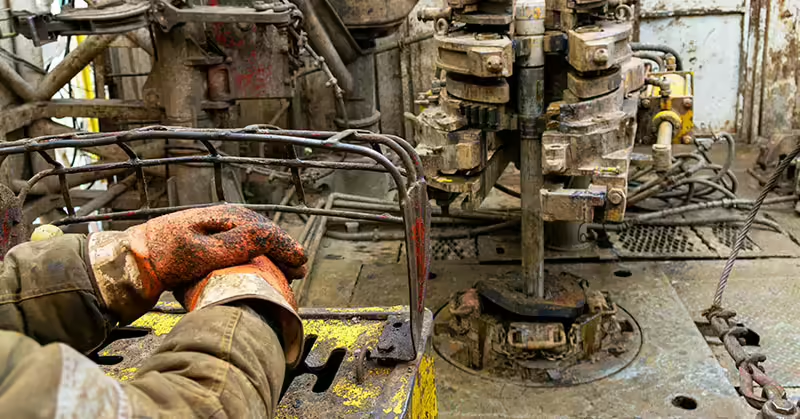OSHA Standards Governing Oil Rig Hazards And Safety
March 29, 2021

According to a study in May 2019, Texas employed more roustabouts—commonly referred to as unskilled laborers—than the next four states combined (Oklahoma, North Dakota, New Mexico, and Colorado). These workers typically find employment in the oil and gas industry onshore and offshore. Two common sources of Texas’ onshore oil and gas are the Eagle Ford Shale in the valley and the Permian Basin in West Texas.
While the oil and gas industry does boost Texas’ economy, it also brings an increased rate of serious or fatal injuries to its workers. According to the Occupational Safety and Health Administration (OSHA), nearly 500 Texas oil and gas workers were killed during a recent 4-year study. These tragic accidents and studies often cause one to question the safety standards enforced in these dangerous work environments.
Which OSHA Standards Govern Oil Rig Safety?
Under the General Duty Clause, employers are required to provide workers with a safe workplace with no recognized hazards that cause or are likely to cause death or serious injury. This includes safeguarding employees from being exposed to certain hazards, such as drilling, serving, and oil and gas storage. Most oil and gas drilling and servicing operations fall under 29 CFR 1910. A non-exhaustive list of examples of safety hazards regulated by 29 CFR 1910 are:
- 1910 Subpart D – Walking-working surfaces
- 22 – general requirements
- 25 – stairways
- 27 – scaffolds and rope descent systems
- 1910 Subpart F – Powered platforms, man lifts, and vehicle-mounted work platforms
- 1910 Subpart I – Personal protective equipment (PPE)
- 132 – general requirements
- 133 – eye and face protection
- 134 – respiratory protection
- 135 – head protection
- 136 – foot protection
- 1910 Subpart Q – Welding, Cutting, and Brazing
- 252 – general requirements
- 253 – oxygen-fuel gas welding and cutting
- 1910 Subpart P – Hand and portable powered tools and other hand-held equipment
- 242 – hand and portable powered tools and equipment, general
- 1910 Subpart S – Electrical
- 303 – general
- 304 – wiring design and protection
- 305 – wiring methods, components, and equipment for general use
- 307 – hazardous locations
- 332 – training
- 333 – selection and use of work practices
- 334 – use of equipment
- 335 – safeguards for personnel protection
Common Safety Hazards Found In The Oil And Gas Industry
Oil and gas operations often present many hazards and other dangers to oil and gas workers. Many of these dangers are irreversible and result from the following:
- Hazardous machinery
- Hazardous electrical energy
- Working in confined spaces
- Slip and falls
- Explosions and fires
- Being struck by, caught in, or caught between fast-moving parts
Common Injuries Resulting In The Oil And Gas Industry
While not all injuries that occur in the oil and gas industry are catastrophic, many are capable of causing severe and disabling pain that could prevent someone from continuing to work in a similar or comparable job. Some common injuries include:
- Broken neck, back, or limbs
- Herniated discs in the spine
- Severe burns or cuts
- Amputation to a limb or fingers
- Loss of hearing or vision
- Traumatic brain injury
- Paralysis
- Wrongful death
What Damages Can I Pursue If I Was Injured In The Oil And Gas Industry?
Injured oil and gas workers may be entitled to recover for damages that occurred as a result of somebody else’s negligence or other careless behavior. Some examples are:
- Past and future medical expenses
- Past and future loss of income, wages, earning capacity, or inheritance
- Past and future mental anguish
- Past and future pain and suffering
- Physical impairment
- Disfigurement
- Exemplary damages (punitive damages)
- Loss of consortium
- Loss of enjoyment of life
Contact a Texas Oilfield Attorney for Help
Unfortunately, employers and/or insurance companies responsible for workers’ injuries will not do what is in your best interest. They typically act fast to create evidence that will favor their defense if legal action is brought against them. If you or a loved one has been injured while working in an oil rig or oilfield accident, you should contact our experienced lawyer at Morrow & Sheppard to discuss your legal rights as soon as possible before they are jeopardized by an employer or insurance company. Call (800) 489-2216 for a free, confidential consultation regarding your rights.
- Home
- |
- Oil Rig Accidents
- |
- OSHA Standards Governing Oil Rig...















































